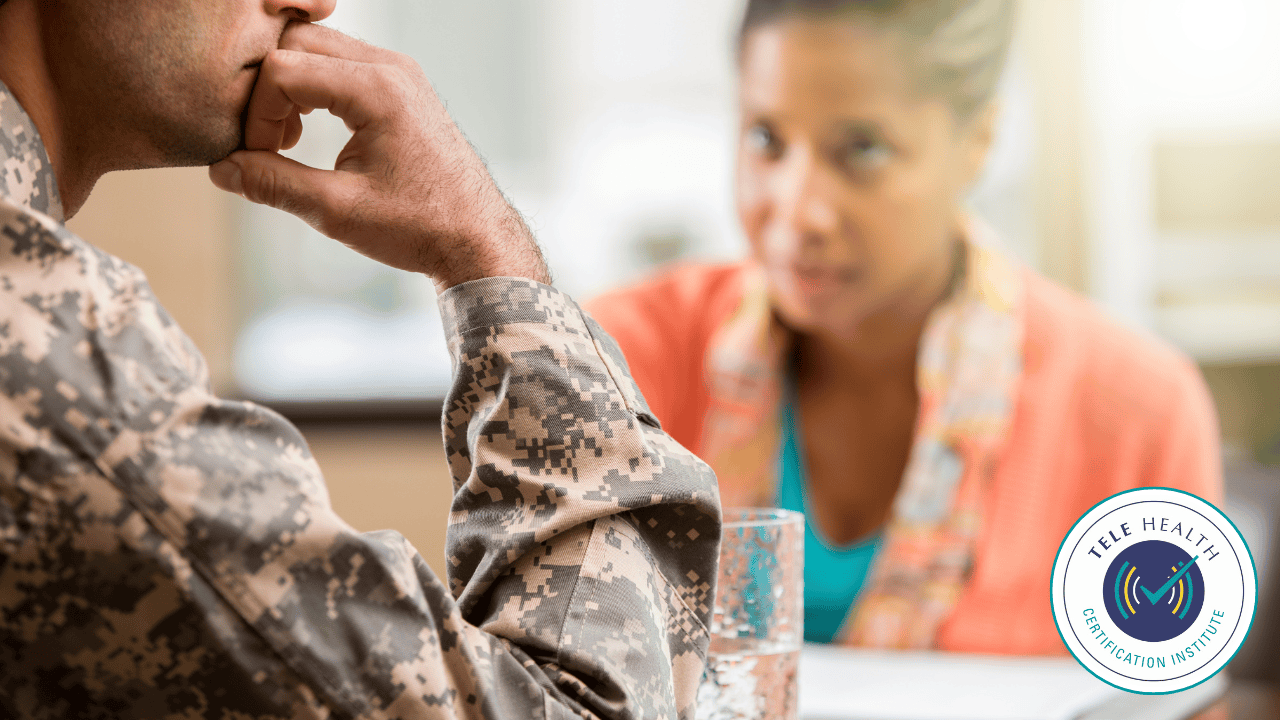What is Good Mental Health and Wellness in Military Family Life
Enroll in the Online Self-Study course and complete it at your own pace.
1 CE hour available for behavioral health clinicians upon completion.

When one person joins the military, the whole family serves. Behind every uniform is a spouse, child, or parent navigating the chronic uncertainty, isolation, and invisible wounds that military life leaves behind. Yet, many behavioral health professionals feel unprepared to truly support military families through the psychological toll of service.
Good mental health and wellness in military life requires more than clinical expertise—it requires cultural fluency and compassionate understanding of the unique pressures that shape military families. This course invites you to grow your skillset in a way that deeply honors and supports those who serve and those who love them.
Enroll in the 1 CE Online Self-Study for $20
Payment Options are listed at checkout
Dr. Mark A. Stebnicki brings over three decades of experience working with veterans, active-duty service members, and their families. As the developer of the Clinical Military Counseling Certificate (CMCC), he is a recognized leader in military mental health education. His grounded expertise and compassionate lens offer clinicians the rare opportunity to learn from someone who understands both the culture of military service and the complex human toll it takes.
In this course, Dr. Stebnicki takes a trauma-informed, culturally responsive approach grounded in research and lived experience. He combines narrative teaching, clinical insights, and psychoeducational resources to equip clinicians with practical tools they can apply immediately.
Topics covered include the military ethos and deployment cycle, combat operational stress, family psychosocial stressors, trauma responses shaped by military indoctrination, mental health stigma within military culture, and the modern realities facing service members and their loved ones. The course also addresses how to effectively foster healthy communication and resilience during transitions such as mobilization, deployment, reintegration, and redeployment.

Instructor
Mark A. Stebnicki, Ph.D., LCMHC, DCMHS, CRC, CMCC, is professor emeritus and former coordinator of the Military and Trauma Counseling (MTC) Certificate Program (which he developed in 2015) in the Department of Addictions and Rehabilitation at East Carolina University. He also developed the national Clinical Military Counseling Certificate (CMCC) in 2016, a 12-hour CE program offered nationally through the Telehealth Certificate Institute. Dr. Stebnicki has been a counselor, educator, researcher, and practitioner with over 35 years of experience in the fields of rehabilitation and mental health counseling.
He has practiced and published in areas related to stress, traumatic stress, disaster mental health response, and the psychosocial aspects of chronic illness and disability. He has extensive experience working with active-duty military service members, veterans, veterans with disabilities, and military families. Dr. Stebnicki has published 11 professional books, over 40 journal articles, and book chapters and has provided over 120 national and regional presentations. He has served on many statewide and national professional counseling boards.
Key Takeaways:
Understand military-specific stressors: Learn how combat exposure, mission tempo, and repeated deployments affect both service members and their families.
Support healthy relationships: Gain tools to promote connection and emotional resilience throughout the deployment cycle.
Culturally informed care: Build rapport with military clients by understanding their unique language, values, and barriers to accessing care.
Why this course?
Trusted expert guidance: Learn directly from the founder of a nationally recognized military counseling certificate program.
A whole-family perspective: Go beyond the battlefield to explore the layered emotional, relational, and cultural dynamics shaping military family wellness.
Actionable strategies: Walk away with frameworks and techniques you can use immediately in clinical practice.
Learning Objectives:
Identify and acquire knowledge regarding the unique mental health and psychosocial stressors experienced by service members and military families during the deployment cycle.
Describe methods to communicate and build healthy relationships throughout the deployment cycle and the demands of a mission-forward and operation tempo environment.
Join us for a course that helps you better understand the real challenges facing military families—and how to respond with empathy, skill, and cultural precision. This learning opportunity can help make your clinical work not only more effective, but more deeply connected to those who sacrifice so much.
Add this course to your cart to begin learning instantly.
This is a non-interactive, self-study course. Instruction consists of 1 hour of video instruction and a post-test.
Select each tab for course details
Availability: From the time of registration, you have six months to access the coursework.
Who Should Attend: This course is intended for clinicians who provide behavioral health services.
Teaching Methods: This is a non-interactive, self-study course. Teaching methods for this course include recorded lectures, videos, a post-test, and a course evaluation.
How to attend: Directions for completing a course can be found by clicking here.
This program was recorded on March 23, 2021.
Testimonials
Bridgette Nalumu
Public health consultant, Green and Purple Consultancy Network
Lora Verley
Clinical Therapist, Bayless Integrated Healthcare
Jackie Tanna
Therapist, Region One Mental Health
Jackie Bell-Russell
Therapeutic Behavioral Strategist, Rialto Unified School District